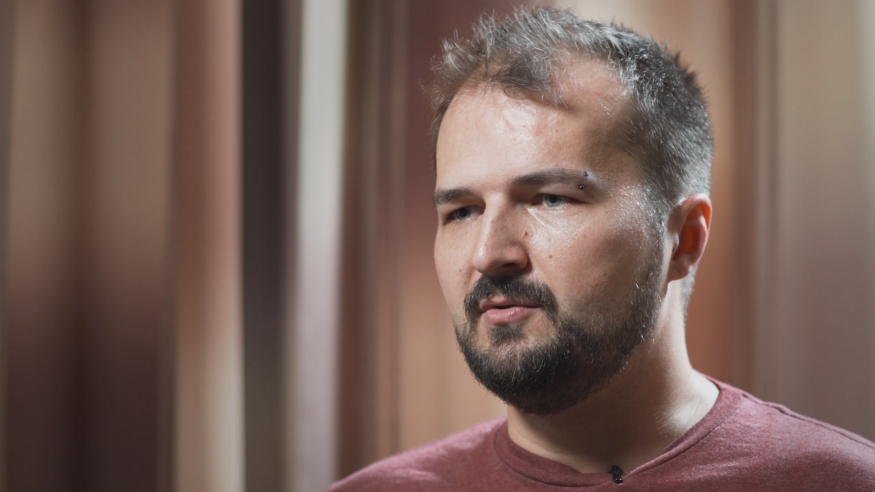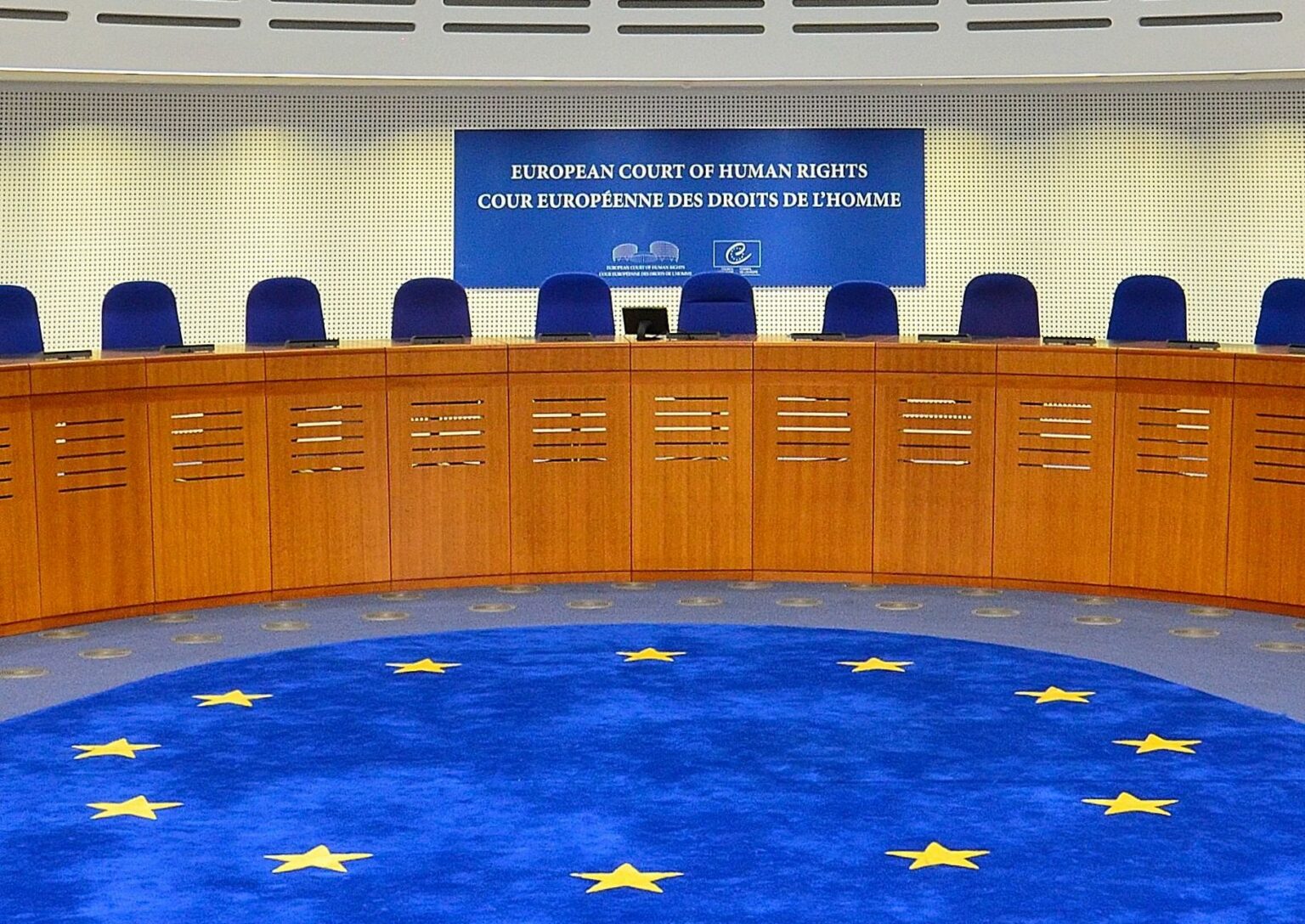The European Court of Human Rights finds Croatian response to violent homophobic attack fosters impunity for hate crime

A judgement issued today by the European Court of Human Rights finds that the response of Croatian authorities to a hate crime against a lesbian woman was “particularly destructive of fundamental human rights”.
In today’s judgment in Sabalic v Croatia, the European Court of Human Rights (ECtHR) found a violation of Article 3 (prohibition of inhuman or degrading treatment) in conjunction with Article 14 (prohibition of discrimination) of the European Convention on the account of Croatian authorities’ failure to respond effectively to the applicant’s allegations of the violent homophobic attack against her.
Background
The case concerned Ms Sabali?’s allegation that the Croatian authorities’ response to a violent homophobic attack against her had been inadequate. She had been attacked in a nightclub when she had refused a man’s advances, disclosing to him that she was a lesbian. The man, known as M.M, severely beat and kicked her, while shouting ‘All of you should be killed!’ and threatening to rape her. Ms Sabali? sustained multiple injuries all over her body for which she was treated in hospital.
M.M. was convicted in minor-offence proceedings of breach of public peace and order and given a fine of 300 Croatian kunas (approximately 40 euro (EUR)). Ms Sabali?, who had not been informed of those proceedings, lodged a criminal complaint against M.M. before the State Attorney’s Office, alleging that she had been the victim of a violent hate crime and discrimination.
Although Croatia has hate crime legislation and offences based on sexual orientation are to be charged as an aggravated crime, it is generally disregarded and violent acts are considered as minor offences, as in the applicant’s case.
ECtHR finding
The European Court found that “such a response of the domestic authorities through the minor offences proceedings is not capable of demonstrating the State’s Convention commitment to ensuring that homophobic ill-treatment does not remain ignored by the relevant authorities and to providing effective protection against acts of ill-treatment motivated by the applicant’s sexual orientation”.
It stressed that “the sole recourse to the minor offences proceedings against [the aggressor] could be considered rather as a response that fosters a sense of impunity for the acts of violent hate crime.” Such conduct by Croatian authorities was found to be “particularly destructive of fundamental human rights”.
The Court’s judgment was informed by a third party intervention submitted jointly by the AIRE Centre (Advice on individual rights in Europe), ILGA-Europe, and the International Commission of Jurists (ICJ).
Marko Jurcic, an activist at Zagreb Pride who provided victim support for the case, said: “The European Court of Human Rights has proven something we have been saying for decades: the Croatian police are failing to protect victims of homophobic and transphobic violence. Unfortunately, the practice of treating homophobic and transphobic hate crimes as misdemeanors is continuing in Croatia. In the last couple of years, three hate-crime complaints by Zagreb Pride have also been rejected by the public prosecutor because of the police misconduct.”
According to ILGA-Europe’s Head of Litigation, Arpi Avetisyan: “Today’s judgment sends a strong signal to the Council of Europe member states to ensure effective investigation, prosecution and punishment of homophobic and transphobic violent crimes. Downplaying such crimes and letting the aggressors get away without due punishment serves as encouragement to homophobia and transphobia.”
Matthew Evans, Director of AIRE Centre on today’s judgment: “Police often fail to investigate the homophobic motive behind violence despite being a key element of the criminal porceedings. In Sabalic v Croatia, the ECHR has found that such an ‘ineffective’ response can amount to inhuman and degrading treatment within the meaning of Article 3 of the European Convention”.
Further information
- Download the press release from the ECtHR
- Download the third party intervention submitted jointly by the AIRE Centre, ILGA-Europe, and ICJ
- Read the news about the judgement, written by Blackstone Chambers, twho acted pro bono for the AIRE Centre, ILGA-Europe and the ICJ
- Find out more about our strategic litigation work
- Find out more about our third party interventions before the ECtHR.
Voices of ILGA-Europe: Daniel Martinovic and the battle for rainbow family rights in Croatia

The surprising success of a Croatian picture book for children last year showed that there may be more allies of rainbow families in the country than headlines about burnt effigies and unsuccessful foster care applications might suggest. In the latest Voices of ILGA-Europe video, we meet an activist and father on the frontlines for same-sex family rights in his native country.
In January, a Croatian gay couple who had applied to foster a child were refused for a second time by the Social Welfare Centre in Zagreb, despite a ruling last year by the Administrative Court, giving them the right to foster. “We are a country full of hypocrisy,” Ivo Šegota and Mladen Koži? told Croatian TV news at the time. However, in early February the Constitutional Court issued a separate ruling in favour of same-sex couples fostering. Constitutional decisions must be enforced, and the government is obliged to ensure compliance, so Ivo and Mladen should not be refused by the Social Welfare Centre again.
One of the activists working to secure rights for same-sex couples who already have children, or who wish to form families with children, is Daniel Martinovic of Rainbow Families Croatia (Dugine Obitelji). Daniel spoke to us for the Voices of ILGA-Europe video project at our conference in Prague last October.
“Rainbow Families Croatia work together with LGBTI people with children, and those who want to become parents, and their families,” he explains.
“We do advocacy work to further push for legislation that will be more open and inclusive for family rights of LGBTI people in Croatia, to have access to adoption, to foster care, medically assisted insemination open to everybody, not just heterosexual couples.”
Daniel began working as an LGBTI activist nine years ago, volunteering for the Pride organisation in Zagreb.
“Most of my LGBTI friends were also in some kind of NGOs and I was tired of sitting at home and looking at the situation getting worse,” he says. “I was active in the passing of the civil union law in Croatia in 2014, and right about then a lesbian couple friends of mine wanted to have a child, so I am a donor to them. In doing so we connected with other families, and one of the families started the whole organisation, because we wanted to connect with other rainbow families in Croatia.”
“Currently in Croatia currently, single people can adopt, single people can access foster care, and single women can access medically assisted insemination, but if you’re in a civil union with a person of the same sex, you cannot do so, and that’s clear discrimination.
“And the fact is that our politicians don’t want to make a change because the level of acceptance of LGBTI people in Croatia is still quite low.”
In February an effigy of a kissing gay couple and their child was burnt at a carnival in the Croatian town of Imotski, an action that was condemned by President Zoran Milanovic, government ministers, the Ombudsperson, and LGBTI rights groups including Rainbow Families, which announced that it would file a complaint for “public incitement to hatred and violence” for the “horrifying” act.
Yet, for all the horror of such a hateful act, it seems the picture of support for rainbow families in the country might be a little different. Last year Rainbow Families Croatia published a picture book for children, which turned out to be an unprecedented and surprising success. (You can read the English version of the book, ‘My Rainbow Family’ here.)
“We thought it would be only for us, a couple of families in the organisation,” Daniel explains. “In the end it went to over a 2,000 people in 25 countries. It has really shown us that there are many allies in heterosexual families that want to talk to their children about LGBTI issues.”
The work that ILGA-Europe does with member organisations such as Rainbow Families Croatia is important to Daniel. “The workshops that ILGA-Europe organises throughout the year gives you an opportunity you wouldn’t have, you would be like a small island in your own country. It’s really helped us to become even more visible in a bigger European context, it gives us an easier way to talk to MEP’s in the European Parliament, because it teaches you some skills. It really helps you grow as an organisation, it helps you grow as an individual, so I think it’s really important.”
DK v. Croatia

Ill-treatment by police officers
(Application no. 28416/14), 8 June 2015
Find Court’s communication here.
Find Court’s decision here. (Inadmissible, premature complaint before the Court)
- The case concerned police ill-treatment and discrimination based on applicant’s sexual orientation, with subsequent lack of an effective investigation by the Croatian authorities in that respect.
- The joint intervention by ILGA-Europe, the AIRE Centre and the ICJ focusedon the positive obligations of the Contracting Parties under the Convention in respect of allegations disclosing credible evidence of treatment prohibited under Article 3, sexual orientation and/or gender identity as a ground of discrimination, and the duty of the authorities to take all reasonable steps to identify any discriminatory motive in connection with allegations of ill-treatment.
- Submissions further argued that discrimination based on sexual orientation is prohibited on the international and European levels. The ECtHR expressly stated that the concept of one’s sexual orientation is a prohibited ground of discrimination under Article 14 ECHR and discrimination on this ground is considered ‘suspect’ and subject to ‘particularly severe scrutiny’.
Sabalic v Croatia

Physical violence on ground of sexual orientation.
(Application no. 50231/13), 9 May 2014
Find Court’s communication here.
- The applicant complained of the lack of an appropriate procedural response of the Croatian authorities to an act of violence by a private party motivated by her sexual orientation.
- ILGA-Europe together with the AIRE Centre and the ICJ provided an overview of the prevalence and nature of homophobic and transphobic hate crimes in Council of Europe member states. They presented a survey of international, EU and comparative law on the procedural and substantive obligations of member states to investigate such crimes, including a possible bias motive, and, when determining sanctions, to take proper account of the bias motive.